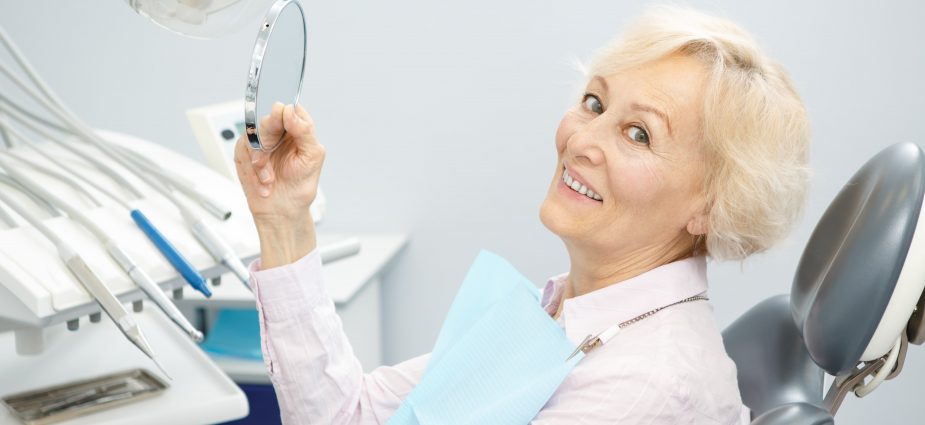Your teeth can stay intact for the whole of your life with proper care and regular dental visits. However, even for people who brush and floss regularly, there are issues you will have to deal with regarding your oral health when you become a senior. For starters, as you age, the risk of poor oral hygiene increases and the ability to self-manage due to physical frailty and functional dependence increases. With a lower ability to self-manage comes an increased risk for infection and diseases.
Oral care for seniors is critical because poor oral health can seep into other areas and lower the quality of life. Since older people’s mouths are susceptible to disease, a slight slack in oral hygiene could prove catastrophic. It does not help that your dental history may complicate oral health care; if you have implants, bridges or dentures, for example.
Note that age, as a factor of itself, is not dominant in oral health. It is conditions that come with age, like arthritis for example, that make the subject difficult. Drugs may also affect the treatment necessary. As you age, the following are some ways to look after your teeth. Note that oral hygiene is also about the tongue, lips, saliva, gum and tissues, and not just your natural teeth or dentures.
· Brush twice a day
Bacteria in plaque can produce acids that damage the gums and teeth. Brushing removes plaque. For natural teeth, brush at a 45% angle, in a circular motion and clean all the surfaces of the teeth. Dentures present danger of getting fungal infections, so do not wear them at night. Clean them with soap and not toothpaste. Remember to brush gums after removing dentures.
· Use toothpaste with fluoride
Fluoride will protect your teeth. It will strengthen the enamel, something you need for frail teeth. Spit but do not rinse your mouth after brushing.
· Use a soft brush
You want to use a brush that is gentle on teeth, tongue, and gums. Even with dentures, a soft brush is essential. Be sure to brush your tongue as well. The brush should be replaced every three months or after a cold.
· Use anti-bacterial after meals
Your teeth are frail, and so an antibacterial product will reduce the risk of plaque. Avoid products with chlorhexidine. If you have to use it, use it after lunch.
· Keep your mouth moist
Saliva has protective properties. When your mouth is dry, diseases can develop fast. Other than the discomfort of dry mouth, it can also impair taste, chewing, and speech. Sip water to moisten your mouth.
· Shun sugar
Tooth decay and sugar are interconnected. Keep away from sugary snacks and drinks to reduce the acids that cause decay. Consider buying foods labelled as ‘tooth friendly.’
How a dental professional can help
There are conditions that you are susceptible to because of age. Some of them include darkened teeth, dry mouth, gum disease, and tooth loss. Some people even experience a diminished sense of taste and stomatitis. A dental professional can help to:
· Handle secondary caries – Gum recession exposes the teeth to decay. People with fillings may experience recurrent decay. The dentist will help to replace the fillings.
· Deal with dry mouth and sensitivity – periodontal disease exposes areas unprotected by the enamel. They become sensitive to beverages and hot food. Your dentist will check to see if the sensitivity is a symptom of another problem and recommend ways to handle dry mouth.
· Check dentures – regardless of age, any person with dentures should visit the dentist regularly. They will address any problems that arise. Sometimes they will recommend a replacement.
During a dental exam, you can expect to give your dental history. Before the visit, make a note of the changes in your mouth no matter how small they seem. Things like sensitivity, pain, sores, lumps, and swellings can help the dentist to advise you on the way forward.
To read more on topics like this, check out the health category.

Leave a Reply